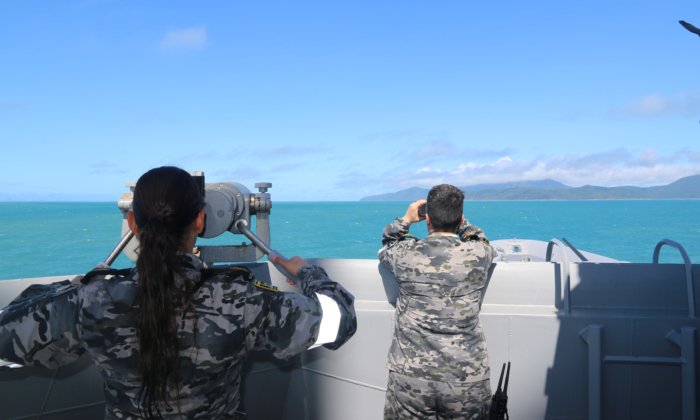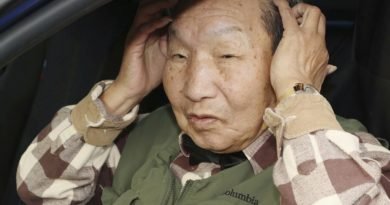Australia Participates in Second US-Japan Military Exercise
Australia has participated in a military exercise that was formerly exclusive to the United States and Japan, as the AUKUS partnership takes on a more concrete form.
Last week, the Australian Defence Force (ADF) joined their counterparts for Exercise Keen Edge in Hawaii and mainland Japan, which aimed to test combat readiness to counter security challenges in the region.
Keen Edge 24 was historically a bilateral activity between Japan and the U.S. before Australia announced its participation in 2023.
Australian Defence Minister Richard Marles described the country’s engagement as “another example of our commitment to strengthening security cooperation and working with others, including the United States, to support regional stability.”
Chief of Joint Operations Greg Bilton noted that the Australia-Japan relationship is “underpinned by engagement and collaboration across all aspects of defence.”
“We are actively strengthening our commitment to security cooperation,” Mr. Bilton added.
The event followed Exercise Yama Sakura 23 in December 2023, the first Japan-U.S. exercise that Australia participated in after being an observer for over 10 years.
The large-scale command post-training exercise saw the ADF deploy over 200 personnel to camp Higashi-Chitose in Hokkaido, Japan. They joined over 1,000 members of the U.S. army and over 5,000 personnel of the Japanese Ground Defence Force.
“Australia’s participation in Exercise Yama Sakura 85 is a significant step forward in trilateral cooperation in support of an open, stable, and prosperous Indo-Pacific,” Major General Scott Winter said in 2023.
China’s Growing Aggressiveness
Efforts to streamline military manoeuvres between the three nations were set against a backdrop of the Chinese Communist Party’s growing aggressiveness in the Indo-Pacific.
Over the last decade, Beijing has flexed its military muscles in the region, particularly the South China Sea. The communist regime expanded its desired area of control by preventing Vietnam, Japan, and the Philippines from developing their oil and gas fields unless they submitted to Beijing’s rules.
While some countries acquiesced to the regime’s terms and some tried to remain neutral, others have openly resisted Beijing’s legal preferences.
Japan was the only country in the region to call for the restriction of Beijing’s military exercises in its exclusive economic zone.
Meanwhile, most countries in the Indo-Pacific region, except Brunei, have objected to Beijing’s so-called nine-dash line, which claimed control over the fishing stocks and the development of oil and gas in various parts of the South China Sea.
The nine-dash line has been deemed invalid under both the Convention and general international law.
According to China analyst Isaac B. Kardon, Beijing sought to change the prevailing international law of the sea by building bureaucratic organisations, domestic legal bodies, and a naval and maritime law apparatus.
“Systematically, deliberately, and with growing sophistication, China’s leaders seek to shape and use International law to their advantage,” he argued in his book “China’s Law of the Sea: The New Rules of Maritime Order.”






